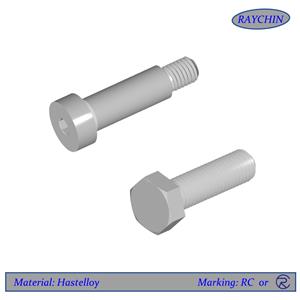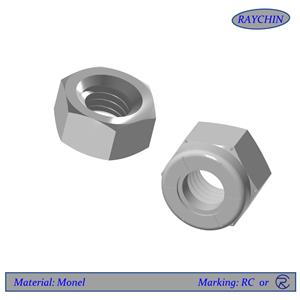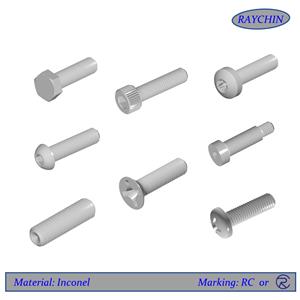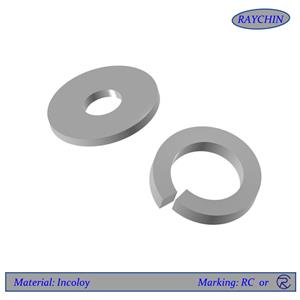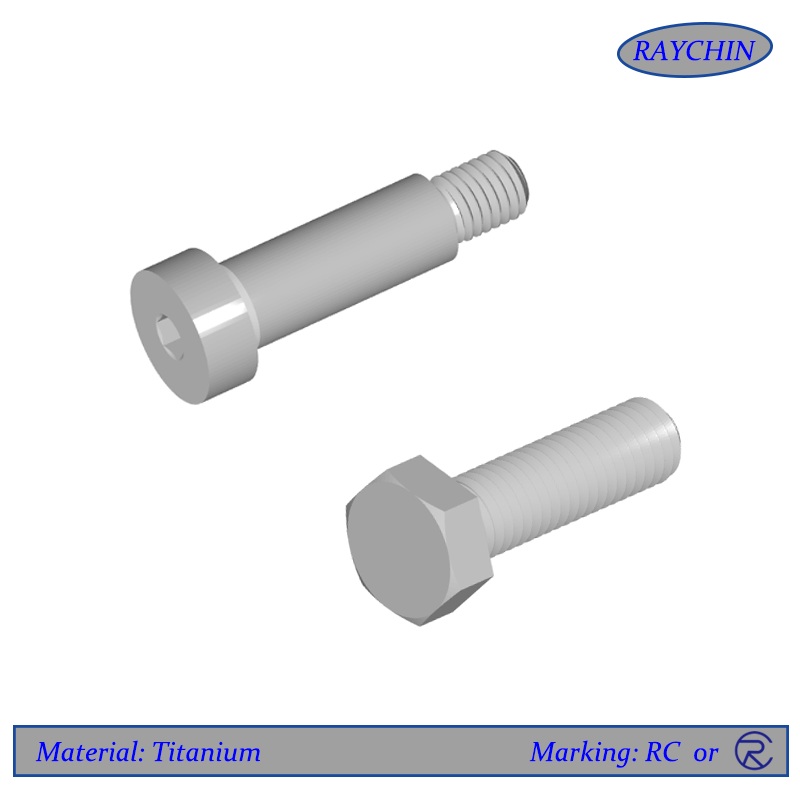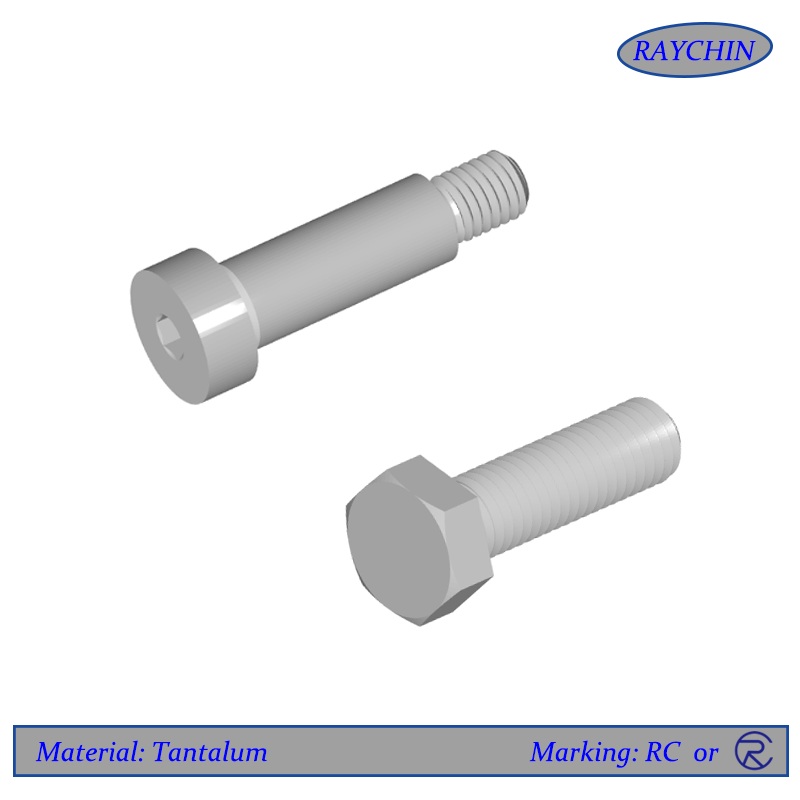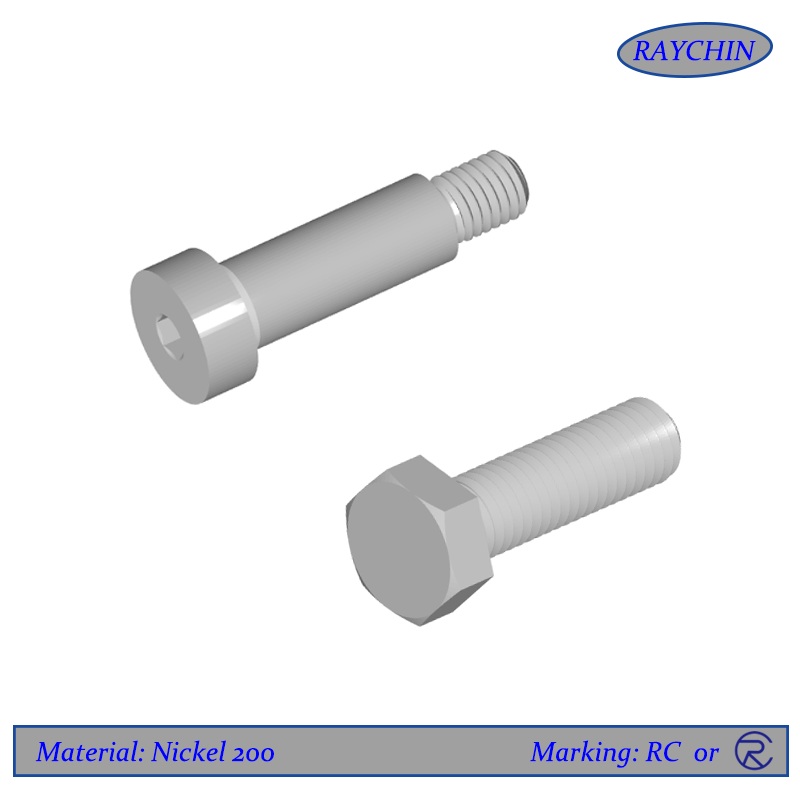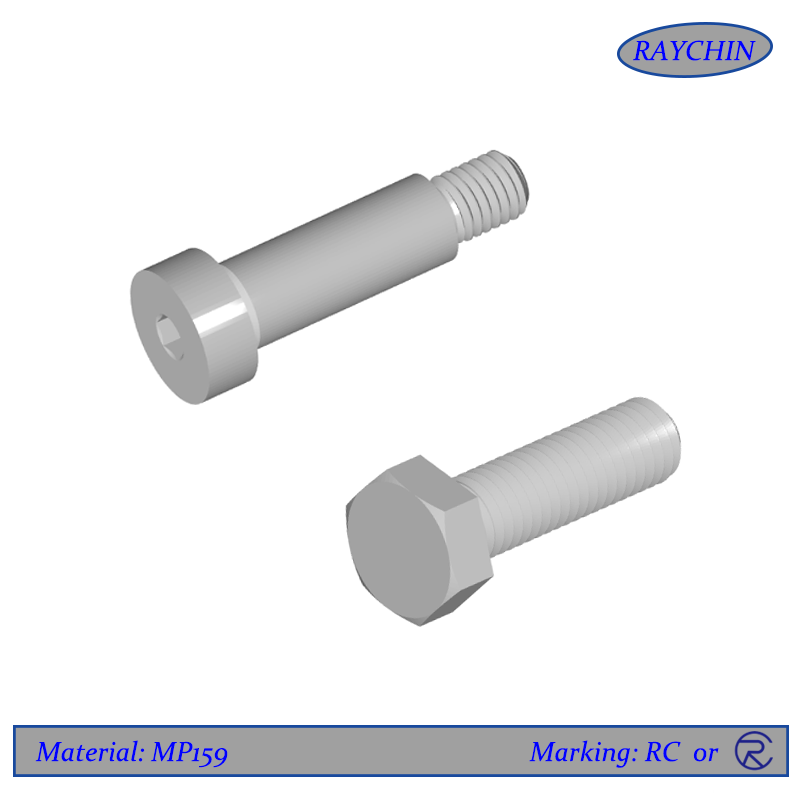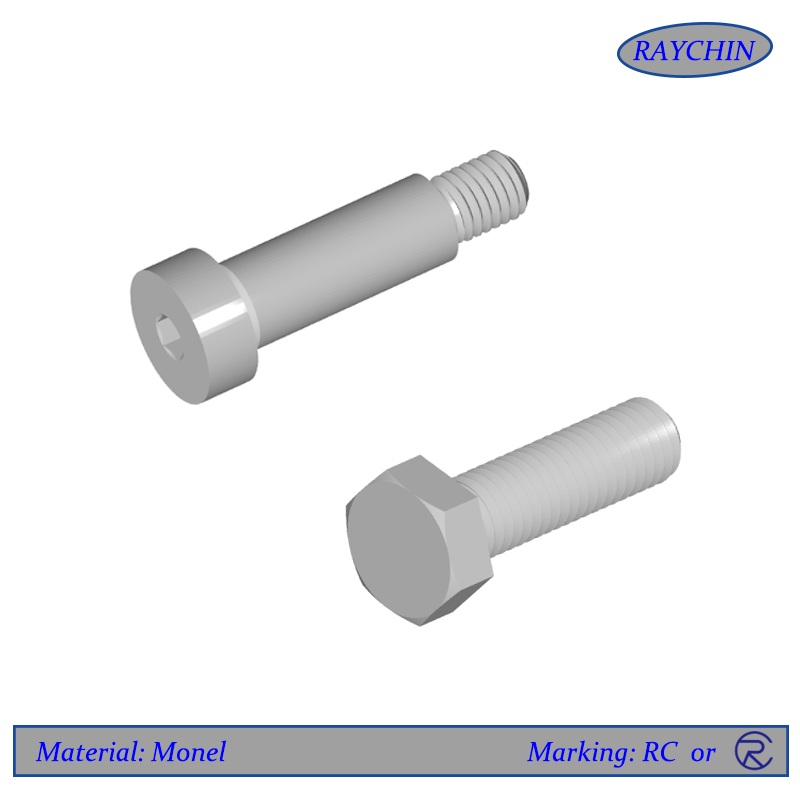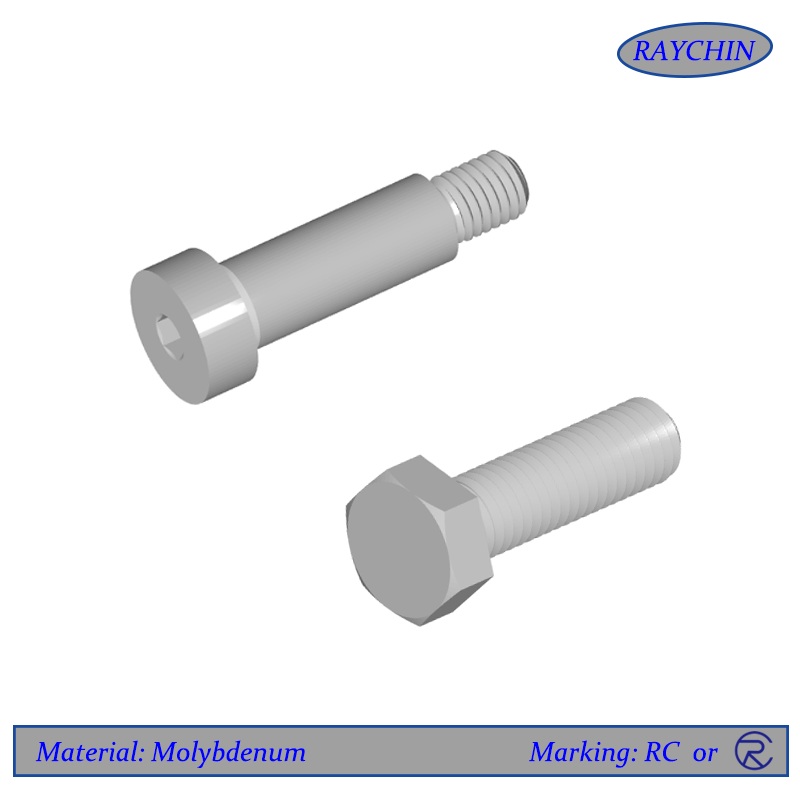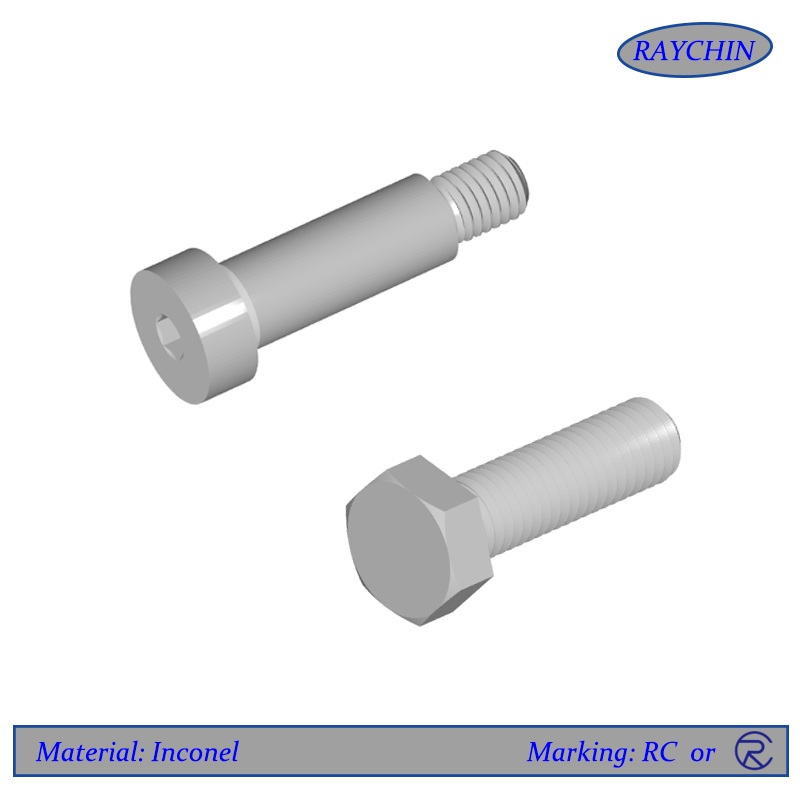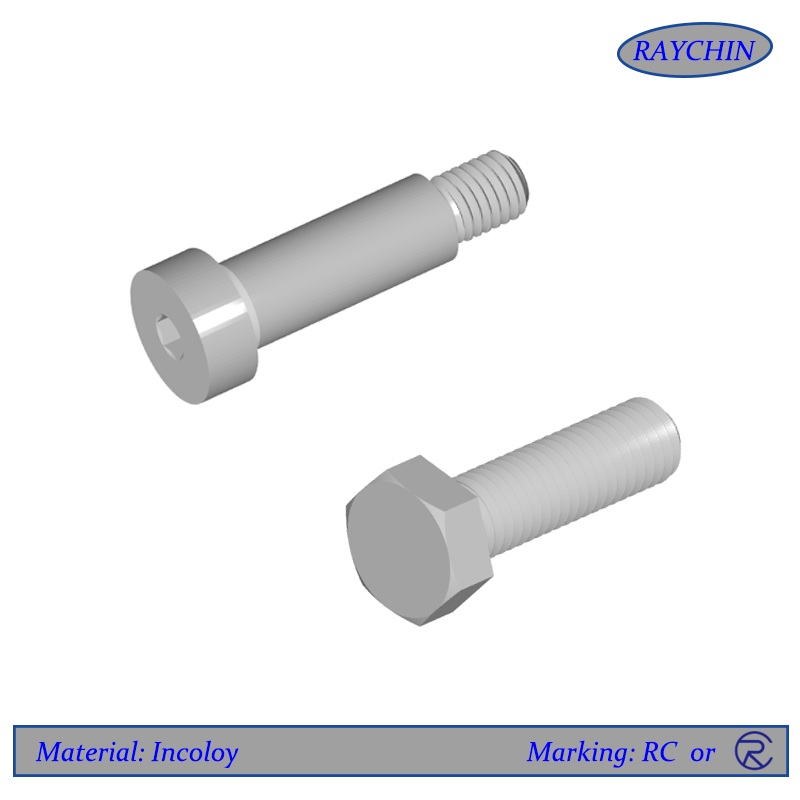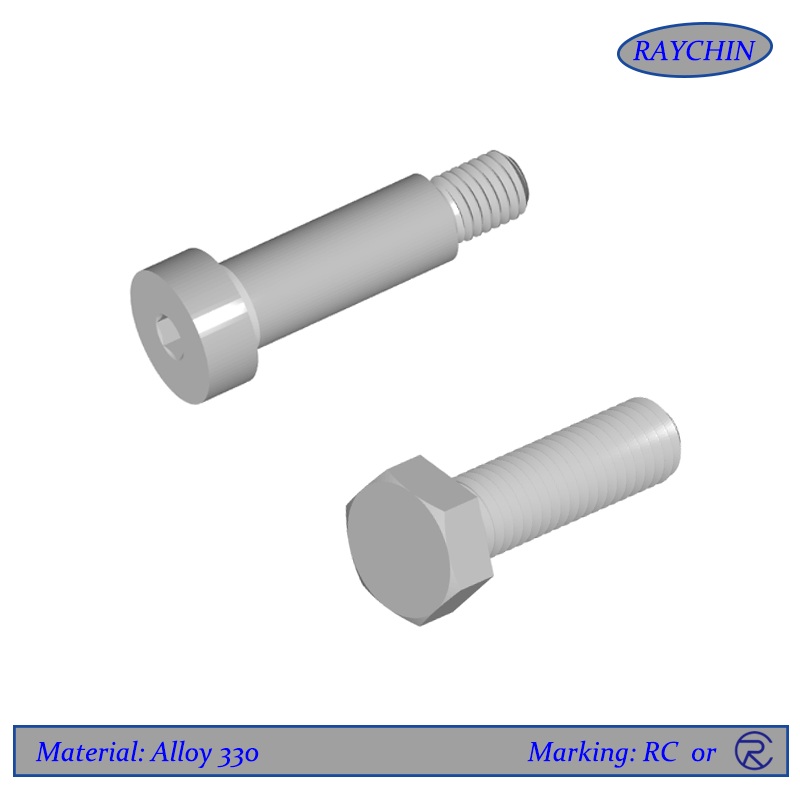-
Titanium Bolts
Titanium fasteners are best known for being strong, lightweight, and corrosion resistant. They are critical to many industries including chlor alkali, marine, off-shore oil & gas, desalination, medical, and pulp and paper. Grade 2 and 5 are the most commonly used grades of titanium screws:
Send Email Details
• Grade 2 (UNS R50400 / 3.7035) :Commercially pure titanium and the most common grade for screws.
• Grade 5 (UNS R56400 / 3.7165): Superior strength-to-weight ratio for a unique combination of corrosion and high strength. -
Tantalum Bolts
Tantalum bolts are best known for its unmatched corrosion resistance and chemical inertness. Tantalum bolts have a similar corrosion resistance to that of glass, but all of the typical mechanical and electrical properties of a metal.
Send Email Details
Tantalum bolts are also extremely stable at high temperatures, since tantalum has a melting point around 3000°C. High temperature applications require vaccum or inert gas since tantalum may embrittle when used in oxygen rich environments above 250°C. Tantalum bolts are also one of the most bio-compatible metals available and is also radio-opaque due to its high density (16.68 g/cm3).
All tantalum bolts are available in commercially pure tantalum and tantalum 2.5% tungsten (Ta-2.5%W). -
Nickel 200 Bolts
Nickel 200 (2.4060) fasteners are made from commercially pure nickel and are best known for their excellent performance in caustic alkali solutions such as caustic soda (NaOH). Nickel 200 also exhibits good performance in acids, especially HF (Hydrofluoric Acid - anhydrous) and hydroxides – but can be attacked by common solutions of hydrochloric or sulfuric acids.
Send Email Details -
MP159 Bolts
As aerospace engineering advances, so must the materials to meet the technological requirements of this industry. Bolts made from MP159 have been developed to provide a solution to high temperature, high strength components. MP159 bolts offer strength capabilities similar to other Cobalt Alloys (MP35N) but can be used at much higher temperatures - up to 1100°F, compared to MP35N’s usable limit of 800F. In addition, MP159 bolts can be used beyond 1100°F in short term situations.
Send Email Details -
Monel Bolts
Monel® bolts, like Monel 400 and K500, are made from a nickel-copper alloy and exhibit high strength, toughness and good corrosion resistance over a wide temperature range. An outstanding characteristic of Monel bolts is that they offer exceptional resistance to hydrofluoric acid, a particularly tough acid to deal with, in all concentrations up to the boiling point. For hydrofluoric acid applications Monel bolts are perhaps the most resistant of all commonly used specialty alloys.
Send Email Details
Monel alloy 400 & K500 bolts also exhibit excellent corrosion resistance in marine applications and have reasonable corrosion resistance to sulfuric and hydrochloric acids under reducing conditions.
Because of these characteristics, Monel bolts are often found in marine and chemical processing applications. -
Molybdenum Bolts
Molybdenum bolts possesses a very high melting point of 2620°C, a low coefficient of thermal expansion and a high level of thermal conductivity. Because molybdenum bolts have the ability to withstand extremely high temperatures without changing shape, expanding or softening significantly, they are ideal for high strength / high temperature applications that are shielded from oxygen. Exposing molybdenum fastener to oxygen above 600°C will cause them to readily oxidize.
Send Email Details
As a result, molybdenum bolts find their way into high temperature vacuum furnaces, glass production, military and space applications where oxygen is not present. -
Inconel Bolts
Inconel bolts, like Inconel 600, 601,625,686,718 & 725 bolts, are a family of nickel-chromium-molybdenum alloys used for their high strength at elevated temperatures and good corrosion resistance. Because of its high thermal stability, Inconel can be used in service temperatures ranging from cryogenic to 2200°F (982°C). The high alloy content of Inconel bolts enable it to withstand a wide variety of severe corrosive environments. In mild environments, such as the atmosphere, sea water, neutral salts, and alkaline media, there is almost no attack to Inconel bolts. In more severe corrosive environments the combination of nickel and chromium provides resistance to oxidizing chemicals, whereas the high nickel and molybdenum contents supply resistance to nonoxidizing environments.
Send Email Details
Because Inconel bolts offer a good balance of corrosion resistance, temperature stability, toughness and strength they are often a material of choice for chemical processing, aerospace, marine, electronics and oil & gas. -
Incoloy Bolts
Not to be confused with Inconel, Incoloy fasteners are made of a nickel alloy which contains iron and a lower content of nickel. Incoloy is essentially a more economical option to Inconel, yet with more restricted corrosion resistance and temperature limits. Typically, Incoloy is an ideal material for long-term exposure in high temperature environments due to its oxidation, carburization and creep resistance. Incoloy is widely used for its resistance to seawater, brine, sour gas and high chloride environments at elevated temperatures, which make it a popular choice in the oil and gas and power industries.
Send Email Details
The most commonly used grades of Incoloy fasteners are Incoloy 800, 800H, 800HT; Incoloy 825; and Incoloy 925. -
Alloy 330 Bolts
Alloy 330 (1.4864) bolts are specifically designed for high temperature furnace applications such as vacuum furnaces, heat treating and brazing applications. The most prized trait of alloy 330 is its ability perform under cyclic conditions of temperature extremes from heating and cooling; as well as in alternate carburizing and oxidizing atmospheres. An austenitic, nickel-chromium-iron-silicon alloy, 330 bolts also offer industry a low coefficient of expansion, excellent ductility, and high strength.
Send Email Details

